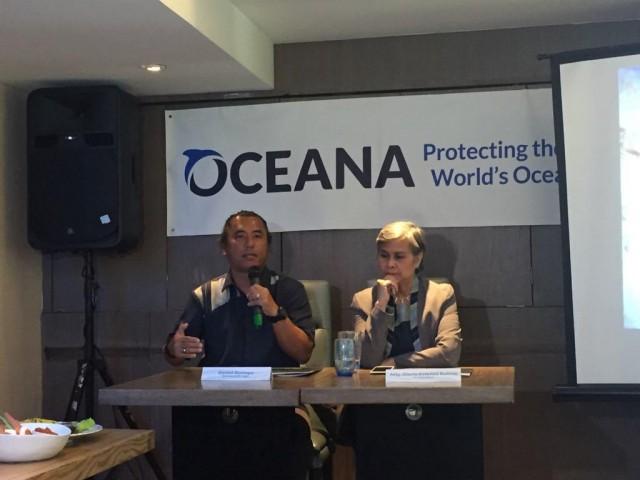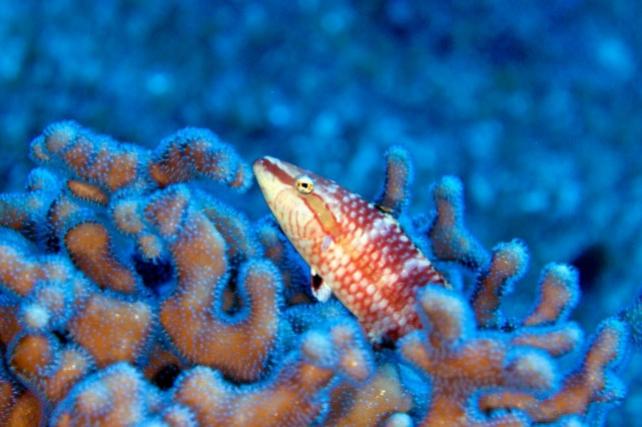Citizen suit, awareness can help secure marine resources in PHL Rise —environmental lawyer
Ordinary citizens, with rights embedded in the Constitution, can file lawsuits against government agencies and officials to ensure environmental protection and marine resource conservation, said an environmental lawyer on Thursday.

Gloria Estenzo-Ramos, vice president of the Philippine chapter of international ocean conservation nonprofit Oceana, cited Article XIII Section 16 of the 1987 Constitution: "The right of the people and their organizations to effective and reasonable participation at all levels of social, political, and economic decision-making shall not be abridged. The State shall, by law, facilitate the establishment of adequate consultation mechanisms."
Estenzo-Ramos also cited the Rules of Procedure on Environment Cases issued by the Supreme Court on April 13, 2010.
The Rules govern the procedure in civil, criminal and special civil actions before the trial courts involving enforcement or violations of environmental and other related laws, rules and regulations.
Estenzo-Ramos said the key to ensure the protection of the Philippine Rise is to increase public awareness of its existence and its value to the Filipino people.

"The wealth of the marine life has not trickled down to the fisherfolk because they are still considered as the poorest of the poor. So, this really shows the gap between policies and law and justice," she said.
The country has enough laws aimed at protecting the environment. The problem stems from the improper implementation of these laws.
"Our Supreme Court is the only one in the world, because of its constitutional rule-making power to protect constitutional rights, to craft the rules of procedure for environmental cases," she said.
The Philippine Rise is a 24.4 million-hectare undersea region located east of Luzon, which includes a 13.4 million-hectare outer section that was validated by the United Nations' Commission on the Limits of the Continental Shelf (UNCLOS) as part of the Philippine territory in 2012.
The shallowest part of the region is Benham Bank, with a depth of 50 meters.
Estenzo-Ramos pointed out that marine resources are under threat by the adverse effects of climate change, overfishing, and use of illegal fishing practices, among others.
As part of efforts to address these challenges, she underscored that the creation of marine protected areas (MPAs) is one of the ways to restore ocean abundance.
"The news has really made the Philippine Rise visible. Unlike what happened in the West Philippine Sea, when only the scientist and government agencies know about it. The Filipinos did not know about it," she said.
"So, our campaign in Oceana is like learning the lessons of the West Philippine Sea, where citizens will really own the Philippine Rise as a place that has to be protected and managed well," she added.
This year, Estenzo-Ramos revealed, the organization sent a letter to the Department of Foreign Affairs through Secretary Alan Cayetano asking if the procedures for allowing marine research were followed.
"But we did not get a response," she said.
The group also opposed oil and gas exploration in Benham Bank, when a report said that seismic exploration will be conducted.
"This would mean destruction of this pristine area," she said.
"The implication of the announcement of this 50,000 hectares as strict protection area, and 300,000 hectares as management area (of the Benham Bank) will already ward off for energy (exploration)," she added.
The next step after President Rodrigo Duterte signed a presidential proclamation declaring parts of the Philippine Rise as marine resource reserve would be the formulation of a management plan.
The protected area includes Benham Bank, which is around 17,000 hectares declared as a no-take zone, and will be closed to any human activities except for scientific research.
In a press statement, Estenzo-Ramos said "The presidential proclamation is much awaited as it paves the way for the conservation, management and protection of corals, fisheries and the rich biodiversity in the iconic place."
"It is now subject to the governance structure and requirements under the National Integrated Protected Areas System. This is much needed to protect fragile marine habitats, address food security and increase the resiliency of our marine ecosystems to the impacts of climate change," she added.
Danny Ocampo, Oceana campaigns manager, welcomed the move to protect a part of the Philippine Rise.
"It's important to show that aside from scientific evidence people are clamoring for the protection of Benham Bank," he said at a media forum on Thursday.
Ocampo said Oceana's campaign to protect the Philippine Rise, the coral reefs and marine resources within the area gained the support of more than 50 organizations and individuals.
"Oceana will keep on working with the government to come up with a management plan," he said, adding that the group will continue to popularize the proclamation of the President as they will try to secure a copy of the proclamation. —KG, GMA News



